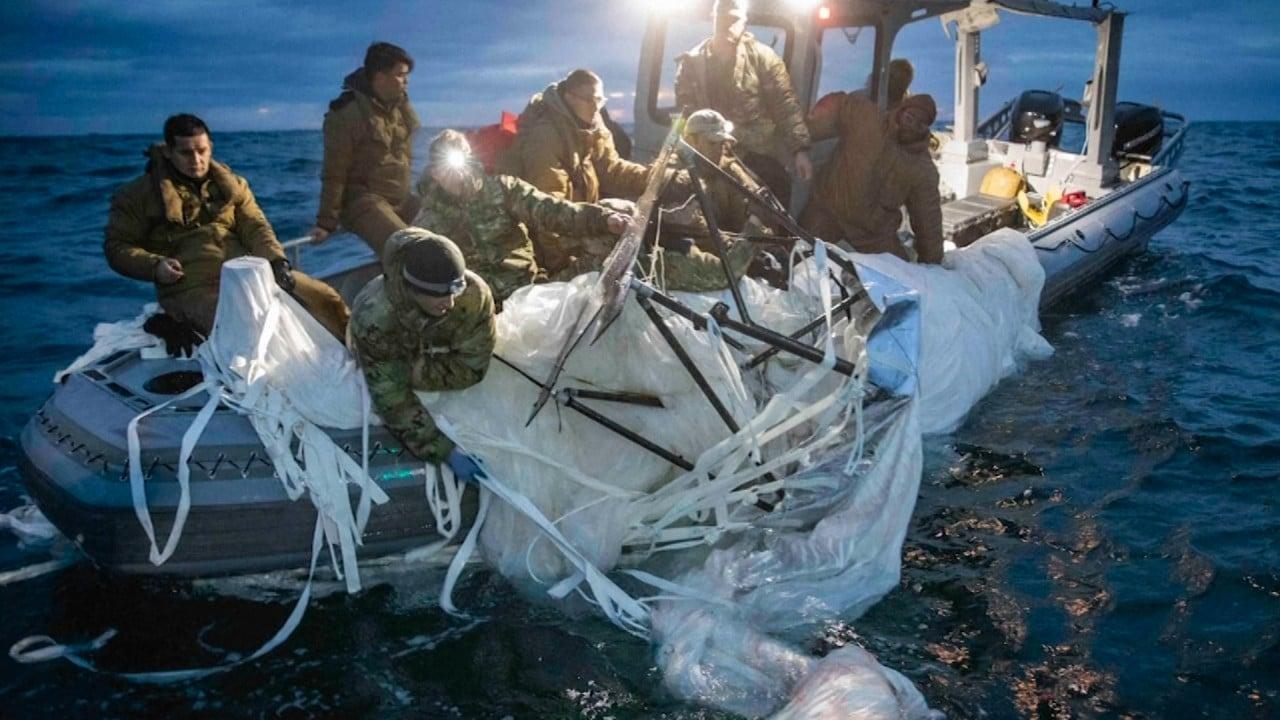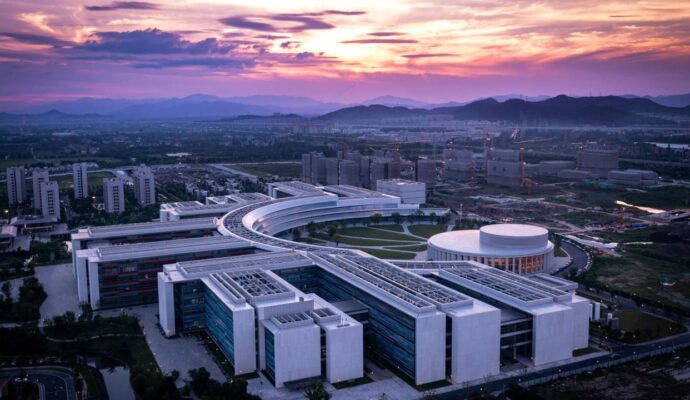
The FBI has backed the lab-leak hypothesis with what the agency described as “moderate confidence”. Four other agencies, including the National Intelligence Council, have concluded with “low confidence” that the virus was transmitted naturally to humans through an animal host.
“Over time some of the explanations for natural origins became less and less likely,” Ratcliffe said. “I was told that some of this would appear over a course of months.
“We’ve now been 3½ years, and we haven’t identified an intermediate host, a reservoir source or species, any of those things.”
David Feith, deputy assistant secretary of state for East Asian and Pacific affairs under Trump, agreed that the lack of “exculpatory” evidence of zoonotic transmission would become more damning over time.
Beyond that, he said, the lack of details from China about WIV researchers who reportedly became sick with flu-like symptoms in the autumn of 2019 – detailed in a January 2021 State Department fact sheet on “activity in the Wuhan Institute of Virology” – would also push more intelligence agencies to favour the lab leak theory.
Ratcliffe and Feith were just two witnesses among many on a day when Congress held at least nine hearings devoted either exclusively to China or focused on issues where Beijing figures prominently.
The Chinese embassy in Washington did not immediately respond to a request for comment.
The hearings were one result of the Republicans’ taking control of the House of Representatives; they have tended to take a harder line than the Democrats against Beijing. But the hearings also reflected the increased tensions that have characterised the US-China relationship since the congressional session began in January.
The Pentagon’s downing of a Chinese surveillance balloon over US territory in February fanned national security concerns about Beijing, and the balloon was raised in many of Tuesday’s hearings to support narratives about the threat China posed.
Moreover, the hawkish view of China is bipartisan. On Monday, the House passed a bill 405-6 urging President Joe Biden’s administration to develop a diplomatic strategy to address Beijing’s surveillance balloon programme; to sanction individuals directly managing or overseeing the programme; and to evaluate the possibility of imposing export controls for technology Beijing uses for aerospace surveillance.
Support is strong in Congress for responding to perceived Chinese aggression and maintaining a robust military presence in the Indo-Pacific in general. Even so, when lawmakers delved into specifics during the Senate Armed Services Committee hearings on Tuesday, what emerged were turf battles, and debates over spending priorities.
Secretary of the Navy Carlos Del Toro was criticised for the decision to postpone financing a US$1.6 billion amphibious vessel designed to carry marines, helicopters and watercraft as the Navy turns its focus from the Middle East to China.
Del Toro instead argued for funding artificial intelligence, anti-hypersonic weapons, staffing and other priorities.
“Some of the critics of both force design or navy operations fail to understand that the threat very much has changed in the Indo-Pacific,” he said.
“We have to evolve and we have to be able to innovate in order to be able to effectively fight, not yesterday’s war in 1953 or 1952, but tomorrow’s war.”
The goal here is to prevent war and deter China from going to war.
Several senators disputed his decision, and accused him of disregarding their will and authority. “It wasn’t a suggestion. It was a mandate,” said Dan Sullivan, Republican of Alaska. “You’re ignoring us. What’s worse, you’re ignoring the law.”
Pentagon officials vowed to do better on deferred maintenance, fuel spills and manufacturing delays at shipyards and ammunition factories that has left the US nuclear-powered attack submarine programme behind schedule and impeded weapon shipments to Taiwan.
“You’ve got to be ready to fight tonight to put doubt in [Chinese President Xi Jinping’s] mind that today’s not the day,” said Admiral Michael Gilday, chief of naval operations.
But Navy officials rejected the idea that the US trails China’s navy, which is expected to have 460 vessels by 2030, citing the high quality of the US fleet and noting that the Pentagon has 56 ships under construction and another 77 under contract.
US Secretary of the Navy Carlos Del Toro. Photo: YouTube
“The goal here is to prevent war,” said Del Toro, “and deter China from going to war.”
The House Foreign Affairs Committee ran two hearings, one subcommittee focused on Beijing’s activities in Africa and another invited witnesses to discuss “PRC influence in the Indian Ocean”.
At the Indian Ocean hearing, experts recommended that the US identify China’s vulnerabilities in the region. Most oil and gas shipments from the Middle East to East and Southeast Asia pass through at least one of the three geographical chokepoints in the Indian Ocean.
Darshana Baruah, a fellow at the Carnegie Endowment for International Peace, said that the “safety, security and stability” of these chokepoints remain “paramount” for energy transitions across the Indian Ocean. She added that these movements are essential for China’s engagement with Africa, the Middle East and Europe. China gets over 40 per cent of its oil from the Middle East.
Baruah highlighted that China views these critical energy routes and sea lines of communication as “vulnerable to the US and Indian presence” across the Strait of Malacca. “If there is any attempt of establishing deterrence for the Taiwan Strait crisis on the maritime domain, I think that would come around the Strait of Malacca,” she said.
Stressing the absence of a national security strategy for the Indian Ocean, Baruah recommended the US examine its own priorities, interests and competition in the region.
In another House hearing room, lawmakers heard from Biden administration officials on the competition between Washington and Beijing in Africa.
“We believe the PRC continues to promote its national initiatives, its own concepts in [sub-Saharan Africa], like the global security and global development initiative, with the goal of reshaping this rules-based international order on terms favourable to Beijing,” said Rick Waters, head of the US State Department’s new “China House” unit.
On the economic front, witnesses in a House Ways and Means Committee hearing urged the US government to negotiate trade agreements in the Indo-Pacific region to counter Beijing’s growing influence there.
“Sitting back and allowing the rest of the world to finalise new free-trade agreements that increase market access and lower tariffs isn’t leading,” Mark McHargue, president of the Nebraska Farm Bureau, told the committee.
Witnesses also urged lawmakers to consider revoking the permanent normal trading status that Congress granted Beijing in 2000 in accordance with World Trade Organization rules.
Returning to an annual approval process would give the US government “leverage with China to try to get the kind of market access, behaviour that we would want without immediately raising all those tariffs”, said Jamieson Greer, a partner at King & Spalding.
Also Tuesday, witnesses advised members of the Congressional-Executive Commission on China to close loopholes and more strictly enforce the year-old US law banning the import of products made in Xinjiang, the far western Chinese region where there is evidence of forced labour.
Even before this week, China-related hearings filled the congressional calendar more than usual, with the House’s new Select Committee on the Chinese Communist Party tackling human rights and the “Communist Party’s threat to America” in its first two sessions. Those hearings were held during prime-time evening viewing hours in the US.
The heightened attention to China in Congress is not limited to rhetoric. As of mid-April, some 250 pieces of China-related legislation are before Congress, according to the US-China Business Council.
Additional reporting by Orange Wang


